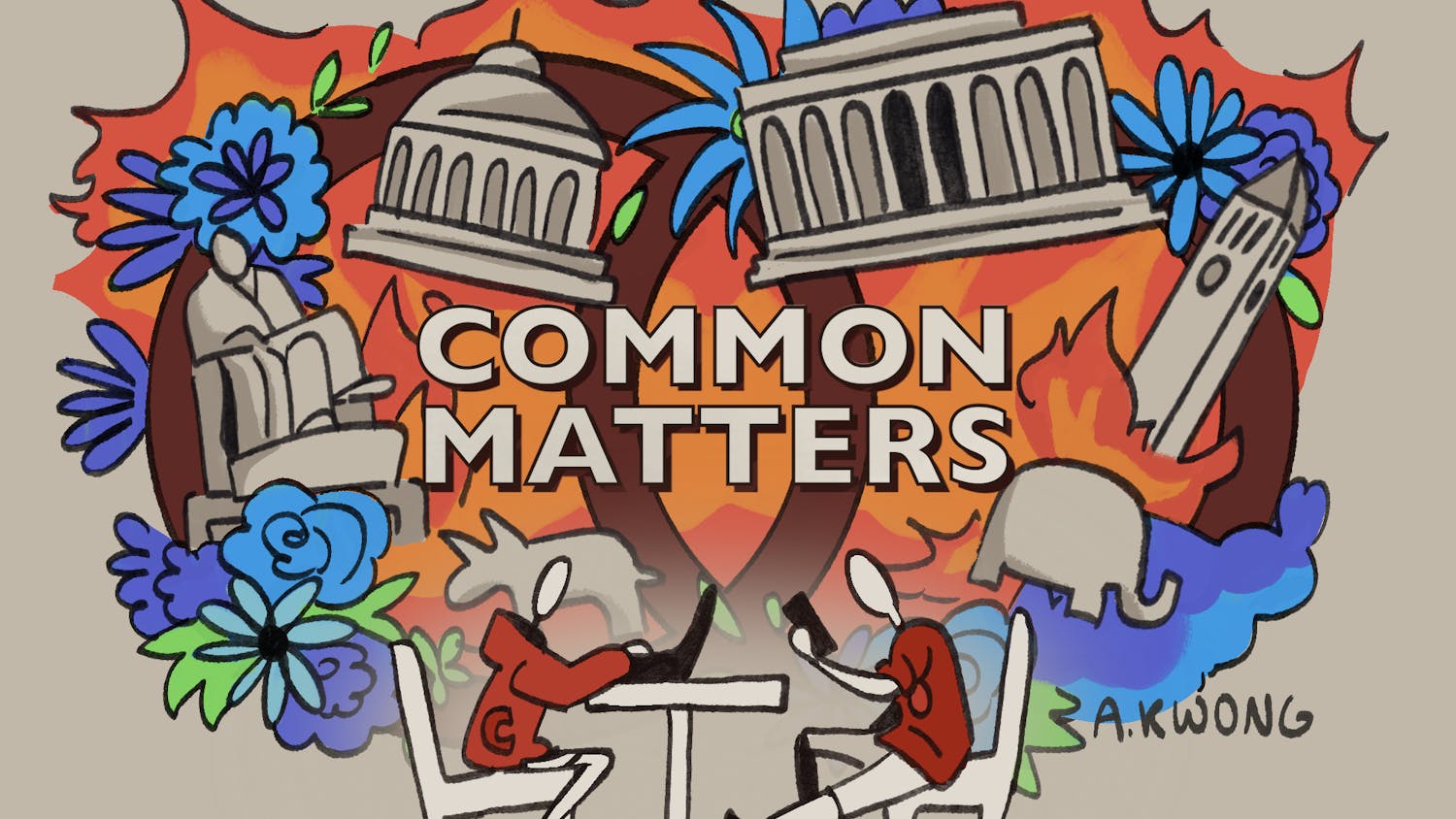To the Editor: Last week, a letter to the editor expressed concern that the Student Activities Funding Commission was using funds collected from the Student Activity Fee to donate to the Cornell Students for Black Lives fundraiser. This concern was rooted in one simple principle: that the Student Activity Fee, a mandatory expense for all students, should only be used to fund Cornell student activities. We agree and write to elaborate on some of the more troubling aspects of SAFC’s decision, explain why this incident is representative of the lack of accountability and the disregard for rules plaguing the Student Assembly, and make clear why all students should be deeply troubled by SAFC’s actions. On June 17, SAFC announced it would be donating $10,000 on behalf of all registered student organizations to the Cornell Students for Black Lives (C4BL) fundraising initiative. C4BL is not a registered student organization. Instead, it describes itself as a “coalition of 185+ affinity, cultural, greek [sic], and professional student organizations.” C4BL has raised over $100,000 via a GoFundMe campaign and has stated that the money will be evenly split between the following organizations: Black Lives Matter of Greater New York, Communities United for Police Reform, NAACP Legal Defense & Educational Fund, Southside Community Center, and Tompkins County Showing Up for Racial Justice. While we trust that the intentions behind this decision were sincere and share the desire to address racial injustice, the donation and the process by which it was made violate the charter of the S.A., break University rules governing the usage of the SAF, contravene University policies on political involvement and force students to financially support organizations with far-reaching agendas they may not support. Here’s why. According to the University, the purpose of the SAF is to “[provide] financial support to student organizations for their programming.” The charter of the S.A. recognizes this and provides that the SAF is to be used “to fund participation in, and viewing of, activities and programs that benefit the Cornell community” and mandates that all byline funded organizations, which are those funded directly from the SAF, use the SAF “primarily for the benefit of undergraduate students.” A donation to external advocacy organizations without any plan for on-campus programming cannot fulfill this criteria. The donation also violates SAFC’s charter and funding guidelines. SAFC is a byline funded organization and exists to fund registered student groups. SAFC has established a detailed process by which registered student groups can apply for and receive funding. Nothing in SAFC’s charter, bylaws or guidelines for funding authorizes the transfer of funds to non-registered groups. Furthermore, the funding guidelines explicitly prohibit organizations that receive funding through SAFC from using those funds to donate to charities or advocacy organizations. C4BL, were it eligible to receive SAFC funds, could not use those funds to donate to social, political or charitable causes. The S.A. has the power to modify or waive SAFC’s guidelines, but it requires the “explicit approval” of the S.A. There is no indication that such approval was ever sought. Based on the S.A.’s published records, no formal action was brought before the S.A., no meeting on the record was held and no vote was recorded. However, even if the S.A. had followed the process for waiving SAFC’s rules, it would lack the power to fundamentally change the purpose of the SAF. To make matters even worse, members of the student body, whose money was used to make this contribution, were denied any knowledge of or input in this decision. In addition to breaking its own rules, SAFC’s decision also contravenes multiple University policies. It violates the Code of Conduct, which prohibits the misappropriation of University funds. It violates the stewardship provision of the Cornell University Standards of Ethical Conduct, which states that “[a]ll executive officers, trustees, faculty, principal investigators, staff, student employees, and others acting on behalf of the university have a responsibility to ensure that all funds received are used prudently, ethically, and for their designated purposes.” And it violates Cornell University Policy 4.18 – Political Campaign Activity, which mandates that political activities “must be done in a personal capacity, and not imply in any way that the university supports, opposes or otherwise endorses any candidate for public office.” One of the recipient organizations, SURJ, is a material supporter of Bernie Sanders and in using the University’s name in this donation, SAFC has not only violated the policy, it has created the impression that a subsidiary body of the University may be supportive of Sanders’ campaign for president. Unfortunately, statements from the S.A.’s Vice President of Finance do little to reassure us that the legal and ethical issues associated with this donation were considered. In documented and archived comments on social media, she acknowledged that C4BL is not a student organization, stated that the donation came from surplus funds, claimed that SAFC has “full discretion” over how it uses its surplus and accused those skeptical of the decision of racism and sexism. These justifications are insufficient and ad hominem attacks are unbecoming of the Student Assembly. Nowhere in the S.A.’s or SAFC’s governing documents are surplus funds exempted from the overarching requirement that they be spent on student activities and for the benefit of undergraduates. It is inconceivable that there would be carte blanche to donate surplus funds to any cause the incumbent SAFC deemed worthy; could SAFC donate to the Susan B. Anthony List or Emily’s List? Perhaps of even greater concern, she has said that she believes so strongly in the righteousness of this decision that she would be willing to break the rules if it were necessary. We wish this were an isolated incident and a departure from the way the S.A. normally conducts business. Unfortunately, it is part of a larger pattern of the S.A. disregarding its own rules and acting to entrench its own power. Last year, for example, the body voted by secret ballot on the BDS Resolution 36 despite its standing rules requiring a recorded vote. In doing so, it denied students the right to know where their representatives stood on a heated and controversial issue. In February, the S.A. attempted to move up elections to a date so early that those without foreknowledge of the decision would have had great difficulty collecting the required number of signatures to be on the ballot. To top it off, supposed leaders on the S.A. have oftentimes used fear and intimidation to get their way. The president has publicly berated an international graduate student for mistakenly and innocently using the wrong pronouns, and privately threatened freshman S.A. members should they not vote his way. All students should be concerned that our leaders feel as though they can show such blatant disregard for the rules and steamroll over anyone who dares to dissent from their orthodoxy. The abuses of the past few weeks, months and even years do not suggest that a response is needed. They demand one. The S.A. is in desperate need of new faces and structural reform. In the coming year, we, along with many of our fellow students, will be looking to bring much needed change and accountability to this institution. If you share that goal, get in touch with us –– we’d love to work with you. Correction (7/1/20): A previous version of this article stated that S.A. attempted to move up elections to an earlier date in March. This actually happened in February. A change has been made above to reflect that.
Matthew Samilow ’22
Victor Besse ’21
Anna Girod ’20
Katerina Zhuravel ’21
Morgan Baker ’23, S.A Freshman Representative 2019-2020
Youhan Yuan ’21, S.A. College of Arts and Sciences Representative 2019-2020
Gabriel Kaufman ’18, S.A. Vice President of Finance 2017-2018
Jung Won Kim ’18, S.A. President 2017-2018
John Dominguez ’20, S.A. ILR Representative 2018-2019
Thérèse Russell ’20
Carolyn Hale ’22
Meredith Lord ’20
Michael Tyrrell ’23
Brendan Dodd ’21
Weifeng Yang ’20, grad











